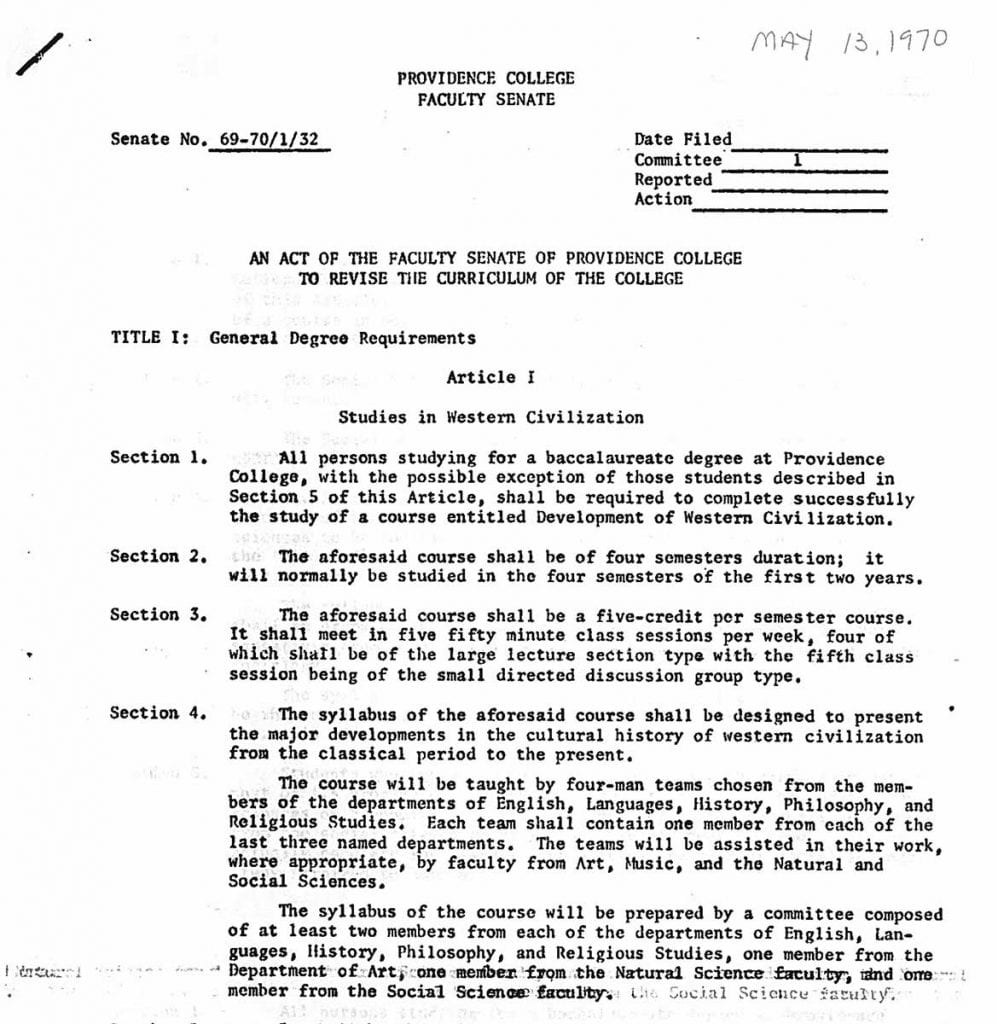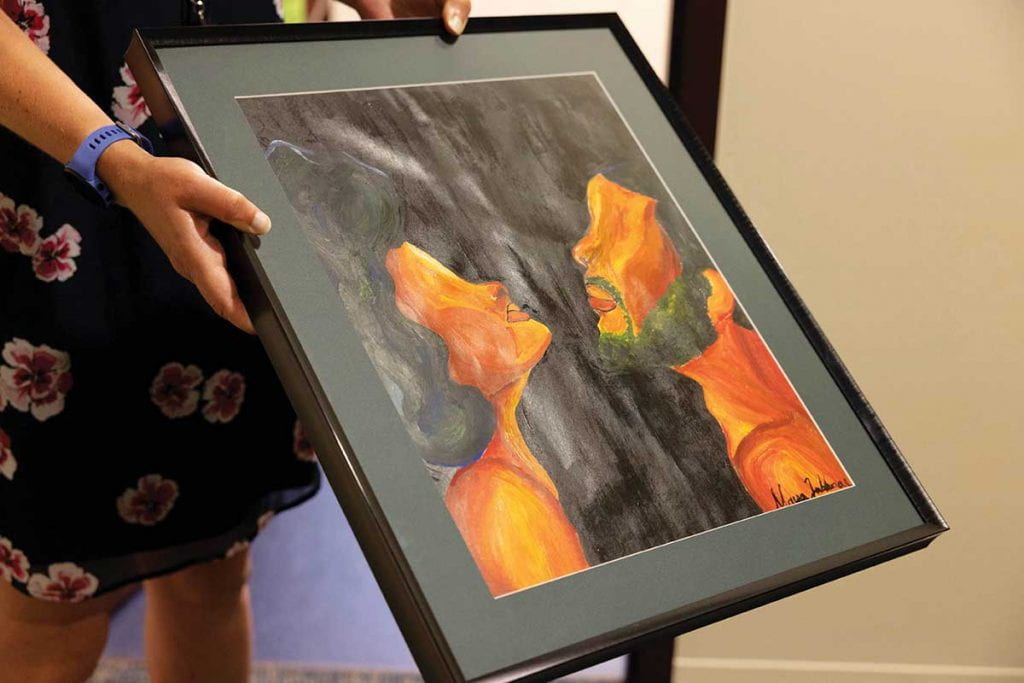Development of Western Civilization Program celebrating 50 years of teaching students about the world
By Vicki-Ann Downing
The Development of Western Civilization Program began as an experiment in September 1971 — an effort to establish a core curriculum at Providence College that would merge a traditional Great Books Program with interdisciplinary teaching in history, literature, philosophy, and theology.
Half a century later, Civ has evolved to meet the challenges of the times and expanded to incorporate new texts and themes, but at its heart, still ponders the eternal questions: What does it mean to be human? How does a human being relate to creation? How does a human being relate to God? What does it mean to live a good life? What is the best society? How does the freedom to make decisions about one’s health square with the common good?

Civ isn’t about “dead white men,” as critics contend.
It’s a course in cultural and intellectual history that poses questions with no clear answers, said Dr. Alexander Moffett, associate professor of English and Civ director from 2018-21.
“It’s ongoing — students will have to deal with its questions over the course of their whole lives,” Moffett said. “What are our debates except how to make a better society?
“If more colleges had a Civ program the world would be a better place,” Moffett said.

In its first decades, Civ was contemporary with the Cold War, Vietnam, the Civil Rights Movement, and the rise in feminism. An example of how it adapted, and why, comes from Dr. Sandra Keating, professor of theology and Civ director from 2015-18. After the terrorist attacks of Sept. 11, 2001, “We realized we hadn’t been talking about Islam at all,” Keating said. “We added study of the Quran.”
Civ has moved from large lecture halls to small seminar rooms, from Moore Hall to the Ruane Center for the Humanities. In 2013, it adopted a new structure. For three semesters, students study the world from ancient times through the American and French revolutions to the modern era. In the fourth semester, they select a colloquium to apply all they have learned to exploration of a contemporary topic. The colloquia are taught by professors from business, science, art, music, economics, and political science, among other disciplines.

Through a new Civ in London option, a dozen sophomores will spend their spring semester in London beginning in January 2022, taking a Civ colloquium taught by two PC professors while completing other coursework at British universities. Dr. Stephanie Boeninger, associate professor of English, and Dr. Margaret M. Manchester ’83G, assistant professor of history, will teach the students in an interdisciplinary DWC colloquium, Battlefronts and Home Fronts: The Making of War and Peace in Western Civilization. Students will take other courses through IES Abroad and have the option to enroll in additional courses at City University, London and Queen Mary University.
Dr. Jennifer Illuzzi, associate professor of history, began a three-year term as Civ director this fall. She leads the Development of Western Civilization Program Committee, which includes members of Faculty Senate, representatives of the major four disciplines, and two student representatives. The committee reviews and critiques syllabi, makes programmatic structure changes, observes professors teaching, and offers workshops. It added a diversity objective in 2019 to incorporate contributions from women and writers of color.
“We’re not thinking about coverage of history, but about the questions we want students to be able to answer,” Illuzzi said.







